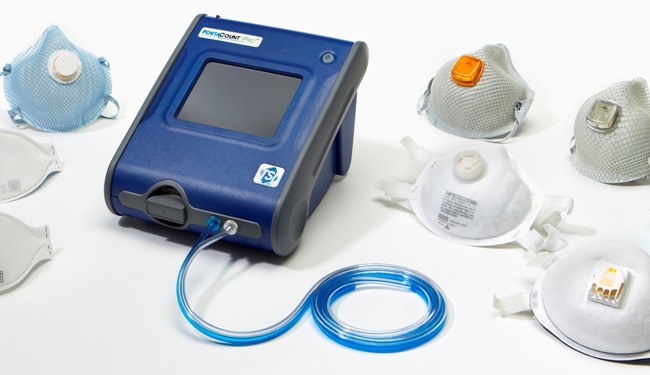Performance of FFP3 disposable respirators
Filtering Facepieces (FFP) are disposable Respiratory Protective Equipment (RPE) for protection against dust, particles and aerosols. They are available in three classes: FFP1, FFP2 and FFP3, with the higher numbers corresponding to better filtering efficiency.
In January 2017, the Health and Safety Executive (HSE) launched RR1087 - Market surveillance of FFP3 disposable respirators, a report describing testing of 10 FFP3 respirator models from 10 manufacturers to determine whether they meet the health and safety performance requirements of EN149:2001+A1:2009.
FFP3 face masks are used in applications such as the protection of construction workers from silicon dust and to protect workers from general airborne dusts generated within the plant and process industries. There are up to 10,000 new cases of lung and workplace respiratory diseases reported each year, and so the correct selection and use of respiratory protective equipment is extremely important. However, while all the masks tested were CE marked, just five passed all the tests with no faults or failures:
- Two models had an isolated fault on a single sample.
- Three models had multiple faults, two of them serious.
- Four of the manufacturers included no, or limited, information on pre-use checks.
Some of these problems should be picked up by an adequately trained operator during their pre-use checks, but faults such as leakage through filtering materials would only have been picked up if the operator was fit tested with the mask in question.
Alan Gilbert, BSRIA Instrument Solutions General Manager, said BSRIA “…will be following closely how industry will respond to this piece of research. Likewise any future policing of the equipment being sold as well as information being provided to the purchaser regarding the need for fit-testing to ensure suitability.”
--BSRIA
[edit] Find out more
[edit] Related articles on Designing Buildings Wiki
- Asbestos.
- CE marking.
- Control of Substances Hazardous to Health (COSHH).
- Deleterious materials.
- Demolition.
- Dust control systems.
- Dust.
- Fit testing.
- Health and Safety Executive.
- Injuries on construction sites.
- Inspections focus on occupational lung disease.
- Personal protective equipment.
- Reporting accidents and injuries on construction sites.
- Respiratory protective equipment.
- The dust control systems market.
- TSI Environmental dust monitoring system.
Featured articles and news
A case study and a warning to would-be developers
Creating four dwellings... after half a century of doing this job, why, oh why, is it so difficult?
Reform of the fire engineering profession
Fire Engineers Advisory Panel: Authoritative Statement, reactions and next steps.
Restoration and renewal of the Palace of Westminster
A complex project of cultural significance from full decant to EMI, opportunities and a potential a way forward.
Apprenticeships and the responsibility we share
Perspectives from the CIOB President as National Apprentice Week comes to a close.
The first line of defence against rain, wind and snow.
Building Safety recap January, 2026
What we missed at the end of last year, and at the start of this...
National Apprenticeship Week 2026, 9-15 Feb
Shining a light on the positive impacts for businesses, their apprentices and the wider economy alike.
Applications and benefits of acoustic flooring
From commercial to retail.
From solid to sprung and ribbed to raised.
Strengthening industry collaboration in Hong Kong
Hong Kong Institute of Construction and The Chartered Institute of Building sign Memorandum of Understanding.
A detailed description from the experts at Cornish Lime.
IHBC planning for growth with corporate plan development
Grow with the Institute by volunteering and CP25 consultation.
Connecting ambition and action for designers and specifiers.
Electrical skills gap deepens as apprenticeship starts fall despite surging demand says ECA.
Built environment bodies deepen joint action on EDI
B.E.Inclusive initiative agree next phase of joint equity, diversity and inclusion (EDI) action plan.
Recognising culture as key to sustainable economic growth
Creative UK Provocation paper: Culture as Growth Infrastructure.























